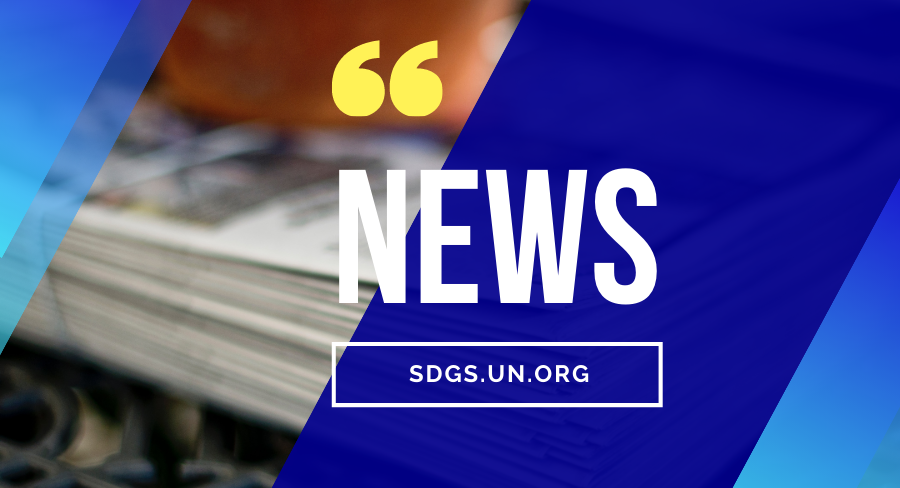News
COFI, FAO, 1 February – Address by Ambassador Peter Thomson, UNSG’s Special Envoy for the Ocean

Director-General, Ministers, Excellencies, Ladies and Gentlemen,
All courtesies observed.
I begin by putting my words with the context of our times. In his State of the Planet address just two months ago, the UN Secretary-General, Antonio Guterres, said humanity is waging a suicidal war on Nature. He reported that one million species are at risk of extinction and ecosystems are disappearing before our eyes. He said the Ocean is being overfished, is increasingly choking with plastic waste and that due to anthropogenic GHG emissions, coral reefs, the great bunkers of Ocean biodiversity, are bleaching and dying. A year earlier at the Climate COP in Madrid, he had warned that three major reports of the IPCC confirm we are knowingly destroying the life-support systems of our planet.
And so, this is the context of our times, the time when we all became aware of the boiling seas of jeopardy into which we are casting our children and theirs if we continue with this war against Nature. Before it is too late, and that hour is near, we must make peace with Nature. In short, Excellencies, this is the time to be among the peacemakers or suffer the bitter consequences.
It is within the spirit of our peacekeeping mission that we should both celebrate the 25th anniversary of the Code of Conduct for Responsible Fisheries, and commend the political declaration that is before us today. It is right that we acknowledge the Code’s beneficial influence, and fitting that we welcome the declaration’s elucidation of the challenges and opportunities guiding the fisheries sector towards a more sustainable future.
There are aspects of the declaration that I’d like to emphasise. It recognises the role of fisheries and aquaculture in supporting countries to achieve sustainable development, particularly in the fight against poverty, hunger, and malnutrition. This is a vital consideration, for though many of us here are focussed on SDG14 and the conservation and sustainable use of the Ocean’s resources, it is an immutable fact that all 17 of the Sustainable Development Goals are inextricably linked.
I would also like to emphasise the declaration’s acknowledgement that in order to scale up fisheries sustainability, we need to implement and improve fisheries assessment and management systems in all regions, particularly in those where fish-stock status is declining or unknown. It calls for coordinated capacity-building programmes addressing the needs and priorities of developing countries, with particular attention to data-poor regions and reduction of the digital divide.
As you well know, the most recent SOFIA report shows we are over-fishing 34.2% of the world’s marine fish stocks monitored by FAO, representing a threefold increase since monitoring began in 1974. This is an unacceptable situation, if indeed we are to make peace with Nature. As the declaration states, where fisheries are effectively managed, stocks are above target levels or rebuilding; while where fisheries management is less effective, stock status and trends are worsening.
Everything is connected, particularly when it comes to the Ocean; and so to put it bluntly, if it is within the waters of weaker RFMOs that overfishing is occurring, part of the peace-making process to which I have referred, must be greatly enhanced assistance to these under-performing RFMOs.
Excellencies,
I come from a background of rural development in a Pacific Island Country, in which small scale fisheries is an integral element of our society. Thus, I particularly commend the declaration’s acknowledgement of the important role and contribution of artisanal and small-scale fisheries and aquaculture in poverty eradication and in providing livelihoods, as well as ensuring food security and nutritional needs of local communities. This is one of the reasons I have worked so closely with the WTO negotiators striving to rid the world of harmful fisheries subsidies, as called for in SDG14.6. These harmful subsidies, totalling over $20 billion per year, are a major cause of ecosystem collapse and they are severely damaging the interests of small-scale fishers.
In all these tasks, if we are to make peace with Nature, we have to be seized by thoughts and actions that embrace accountability, urgency and pragmatic commitment. And as in all things, we must recognise our connectivity and embrace our personal and communal responsibilities for both the problems and the solutions.
My allocated time is up; but allow me to conclude with two quick points. We have just entered the UN Decade of Ocean Science for Sustainable Development. I urge COFI, FAO and all parties present to make the most of the upsurge of information the Ocean Decade will deliver, as it reveals the estimated 90% of the Ocean’s scientific information that is currently unknown. Support the Ocean Decade, that it may give us the science we need for the Ocean we want!
And lastly, the President of the UN General Assembly has recently advised Member States that the Covid-19 pandemic conditions necessitate the ongoing postponement of the UN Ocean Conference, to be held in Lisbon, until 2022. In the meantime, to maintain momentum towards the conference and the implementation of SDG14, the President, supported by the Governments of Kenya and Portugal, and myself, will organise a High-Level Event at the United Nations in the summer of 2021. I can assure you all that, guided by the FAO, fisheries and aquaculture will be a major focus of the High-Level Event.
I thank you for your attention to my words.
